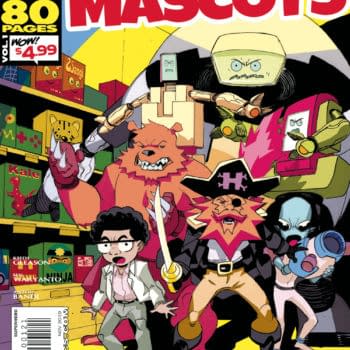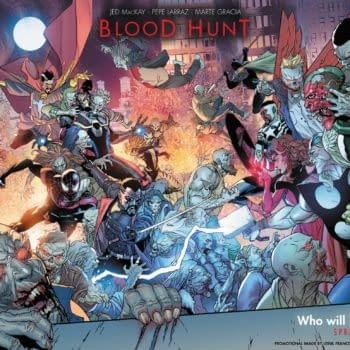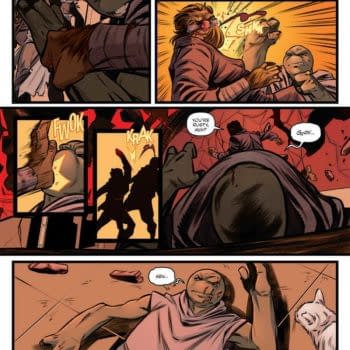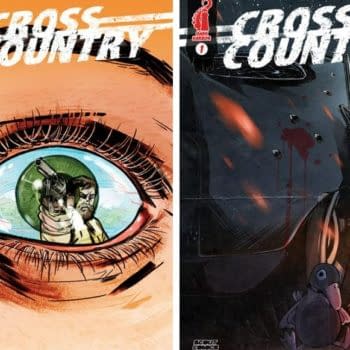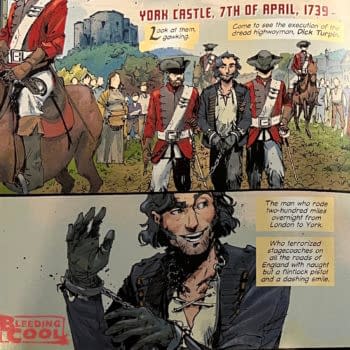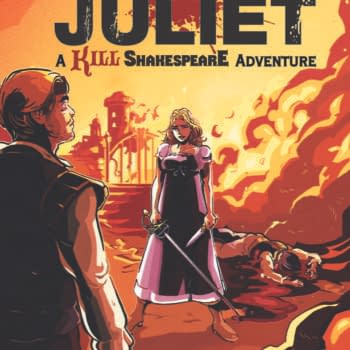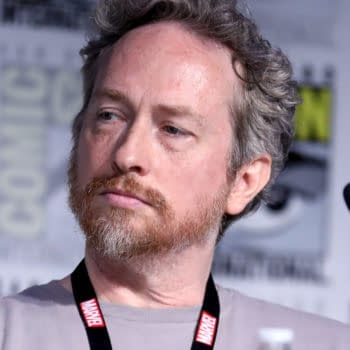Posted in: Comics | Tagged: Comics, grant morrison, morrisoncon
The Empty Page: MorrisonCon Writers on Writing
Lindsey Steffes writes for Bleeding Cool
To read Part One, click here.
As an aspiring comic writer, MorrisonCon's "Writers on Writing" panel was a great opportunity to hear from the best in the business. Grant Morrison, Robert Kirkman, Jonathan Hickman, Jason Aaron, and J.H. Williams III discussed everything from approaches to writing to creative direction, giving the audience insider's tips along the way.
The first topic was approaches to writing: structured writing versus a freer style, equated to "playing like a kid." Grant Morrison encouraged the "feels right" emphasis to writing, an approach based on instinct and intuition more than planned out maps. In opposition to this freer style, Robert Kirkman advocated a plan-based approach, saying "I plot things very tightly, but I always leave room for changing my mind." Jason Aaron added that writing approaches often depend upon the comic. For example, with Scalped, Aaron was working with his own creation, which allowed for maximum freedom; whereas, with X-Men, a comic with a long history, Aaron was limited as a writer because more people and events were involved. In these cases, as Jonathan Hickman says, you have to research and back-read, "mining the old stuff, the cool stuff you remember when you were a kid." For the sake of continuity in long-term comics, planned structure must be relied upon.
When it comes to structuring the page itself, the panel discussed strategies to capture the reader, focusing on the "left-right" reveal. Kirkman's advice to writers: "Write to the page turn." Emphasizing this internal rhythm, Morrison adds, "Every page should have a cliff hanger."

No matter the amount of direction, comics are a process of collaboration, an attempt to discover how art functions with the story. As J.H. Williams III suggests, comic books are a creative synthesis made by "creators," not writer or artist types, to create the final product.
After the final product is created, the panel discussed the challenges of self-analysis and reviewing past work. Morrison says, "I constantly reread [my work]" to avoid repeating his own style, emphasizing the importance of change, growth, and novelty as a writer. That process isn't always easy, though. After attempting and failing to reread Scalped, Aaron confesses, "I'm too chicken-shit to read my own work."
What most of us aspiring writers wanted to hear, though, was the final topic: How to capture great ideas. The panel suggested carrying a notebook or making personal notes on an iPhone like Kirkman does, because as J.H. Williams III says, "[Ideas] always come at the least convenient time." Morrison adds that ideas "always happen when you're not working… [So] don't work, and that's when you'll get the most work done." Words of the wise.



